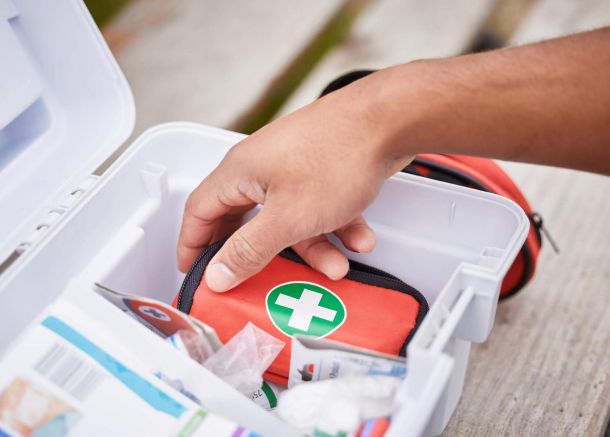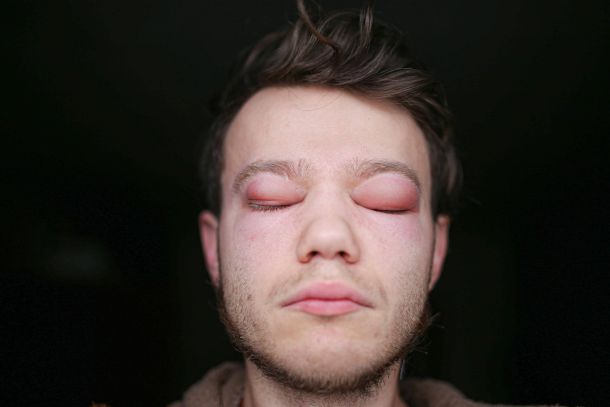Diagnosis, treatment and prevention of childhood Quincke's edema


Viktor Levchenko
Angioedema, better known as Quincke's edema, is a rare but serious condition that can cause serious complications, especially in children. It is a deep, sudden swelling of the skin and subcutaneous tissue, often affecting the face and upper respiratory tract. Children with Quincke's edema can experience painful and frightening symptoms that require immediate intervention.
What is Quincke's edema?
Quincke's oedema is the body's response to an allergen or irritant, causing sudden and sometimes life-threatening swelling of the skin, mucous membranes and subcutaneous tissue. In particularly severe cases, the swelling can extend to the respiratory tract, creating a life-threatening situation.
Causes of Quincke's edema in children

- Quincke's edema is often associated with allergic reactions that can be caused by various external and internal factors, including foods, medications, insect bites, physical stress, and infections.
- The risk of developing Quincke's edema in children is increased if there is a family history of the condition and if you have atopic dermatitis, asthma, or other allergic conditions.
Symptoms of Quincke's edema in children
- Quincke's edema in a child can present with a variety of symptoms, including: swelling of the lips, tongue, or throat; itching or redness of the skin; nausea or vomiting; and difficulty breathing or swallowing. Swelling usually develops quickly, usually within minutes to hours of contact with the allergen.
- In some cases, children may experience rare symptoms of Quincke's edema, including dizziness, loss of consciousness and involuntary urination. Such symptoms require immediate medical attention.
- If your child has symptoms of Quincke's edema, especially if your child has difficulty breathing or swallowing, you should see a doctor or call an ambulance immediately. Even if these symptoms are not present, it is still advisable to see a specialist for consultation.
Diagnosis of Quincke's edema in children

To diagnose Quincke's edema, the doctor examines the child and collects a detailed medical history, including information about reactions to foods, medications, and other possible allergens.
- The doctor may also recommend allergy tests to determine possible allergens. This may include skin tests or blood tests.
- In some cases, additional tests, such as measuring C1-inhibitor levels in the blood, may be needed to confirm the diagnosis.
Treatment of Quincke's edema in children

First aid for childhood Quincke's edema includes immediately stopping contact with the possible allergen and providing free access to air. At home, before the arrival of the ambulance, you can give the child an antihistamine, if it is available and was previously prescribed by the doctor.
Medication
Treatment of Quincke's edema in children includes the use of antihistamines such as diphenhydramine or cetirizine, and corticosteroids such as prednisolone to reduce inflammation. In some cases, drugs to stabilize the mastocyte membrane, such as ketotifen, may be prescribed. In critical cases, an injection of adrenaline may be necessary.
Preventing Quincke's edema in children
Preventing Quincke's edema includes avoiding known allergens and regular consultations with an allergist. Parents should be trained in first aid for angioedema, including taking antihistamines and calling an ambulance.
In conclusion, Quincke's edema is a serious condition that requires immediate intervention. If your child has symptoms of this condition, be sure to see a doctor or call an ambulance. With proper treatment and management, most children with Quincke's edema can lead healthy and active lives.
New materials
Popular Articles
We recommend reading
Contact us in the Contact Us section to ask questions, offer ideas, or for more information about our allergy resource.
Our articles are your trusted source of allergy knowledge. Learn how to make life with allergic reactions easier on our specialized portal.
©
Lechenie-Allergii.com. All rights reserved.
© Lechenie-Allergii.com. All rights reserved.
The information on this site is for informational purposes only and is not a substitute for professional medical advice. We recommend consulting with qualified medical professionals for accurate information and advice.
 English
English  Українська
Українська  Русский
Русский 









